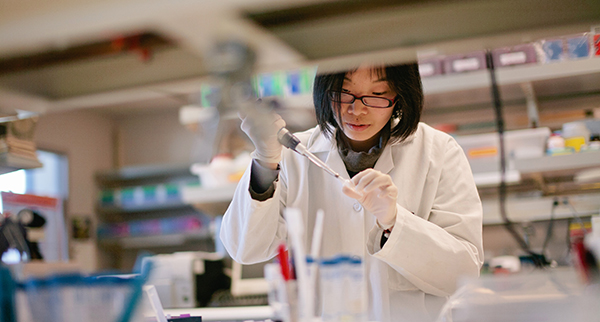How will the latest developments in Life Science impact executive search?

The modern Life Science industry would not be where it is today without the groundbreaking work of the Human Genome Project (HGP) throughout the 1990s and early 2000s.
Culminating with the first complete sequencing of the human genome in 2000, the HGP is solely responsible for the current biotechnology industry, and the subsequent tech and innovation. The US is no stranger to spearheading significant scientific endeavors, either (the HGP was headed by the DOE Office of Science). Since the Manhattan Project was completed in 1946, the US has remained a key player in the world of Big Science. The sequencing of the first human genome may have taken a decade (and cost $3.8bn), but its broader impact on not only Life Science, but the world, has been staggering:
CRISPRoff: The next frontier in pharmaceutical services
Time and cost aside, the HGP revolutionized medicine, launched the field of genomics, and paved the way for the modern biotechnology industry.
Earlier this month, a team of researchers at MIT and UCSF developed a new gene-editing system they dubbed ‘CRISPRoff’, allowing scientists to further revolutionize the potential of the existing CRISPR-Cas9 system.
CRISPR-Cas9 allows scientists to make permanent changes to a person’s DNA. While this is useful (it could potentially cure a genetic disease without long-term treatment), the unintended consequences of the edits (such as changing the wrong stretch of DNA) are difficult to rectify.
Instead of modifying the DNA sequence, CRISPRoff changes the way those sequences are read. Scientists can now silence (or activate) various genes by adding chemical tags onto the DNA strand, without making permanent changes.
Rising to the data challenges posed by genomics
Nowadays, a human genome can be sequenced in under twenty-four hours. For a small cost, consumers can have their own DNA sequenced, allowing them to unlock hidden information about their heritage.
Discovering the truth behind your genes is exciting, but think about what happens after the DNA has been sequenced. Many companies now have banks of genomic data. Who is responsible for keeping that data safe? What will happen if the DNA is stolen?
The rules governing the use of genetics could hinder the legitimate use of data for healthcare and research purposes. Like any data, there are risks to genomic data sharing. If genomic data sharing isn’t carried out responsibly, legally and securely (not just in the UK, but overseas, too), there is an increased risk of privacy breaches or discrimination.
Counteract the biotech skills gap with executive search
No industry progresses at quite the same speed as Life Science. Across the world, professionals are working to create a knowledge foundation for the new bioeconomy; offering organizations the opportunity to address complex, interconnected challenges, while also achieving economic growth.
With such potential at stake, having the right people at all levels of your business is critical – which is why the impending skills gap spells such bad news for organizations worldwide. Interest in STEM is stagnating, and, when paired with the ageing Life Science workforce (junior recruitment suffered both during the financial crisis of 2007 – 2008, and the more recent COVID recession). Employers need to begin working harder to make biotech jobs more appealing to graduates and others in their early careers.
Imperium Global, executive search and Life Science
Genomic science is now an integral part of biological research – none of which would have been possible without the original technological breakthrough, the HGP.
Technology’s grip on Life Science isn’t going anywhere; those who are willing to evolve in line with the industry are more likely to succeed. The candidates who show aptitude, and can adapt to thrive in a constantly changing environment are more likely to have a competitive advantage in securing future roles.
At Imperium Global, our healthcare and Life Science practise serves a range of companies, to place candidates best-suited to the role and business. We have an international network of under-the-radar Life Science executives, who are ready to navigate your organization through the latest challenges.



